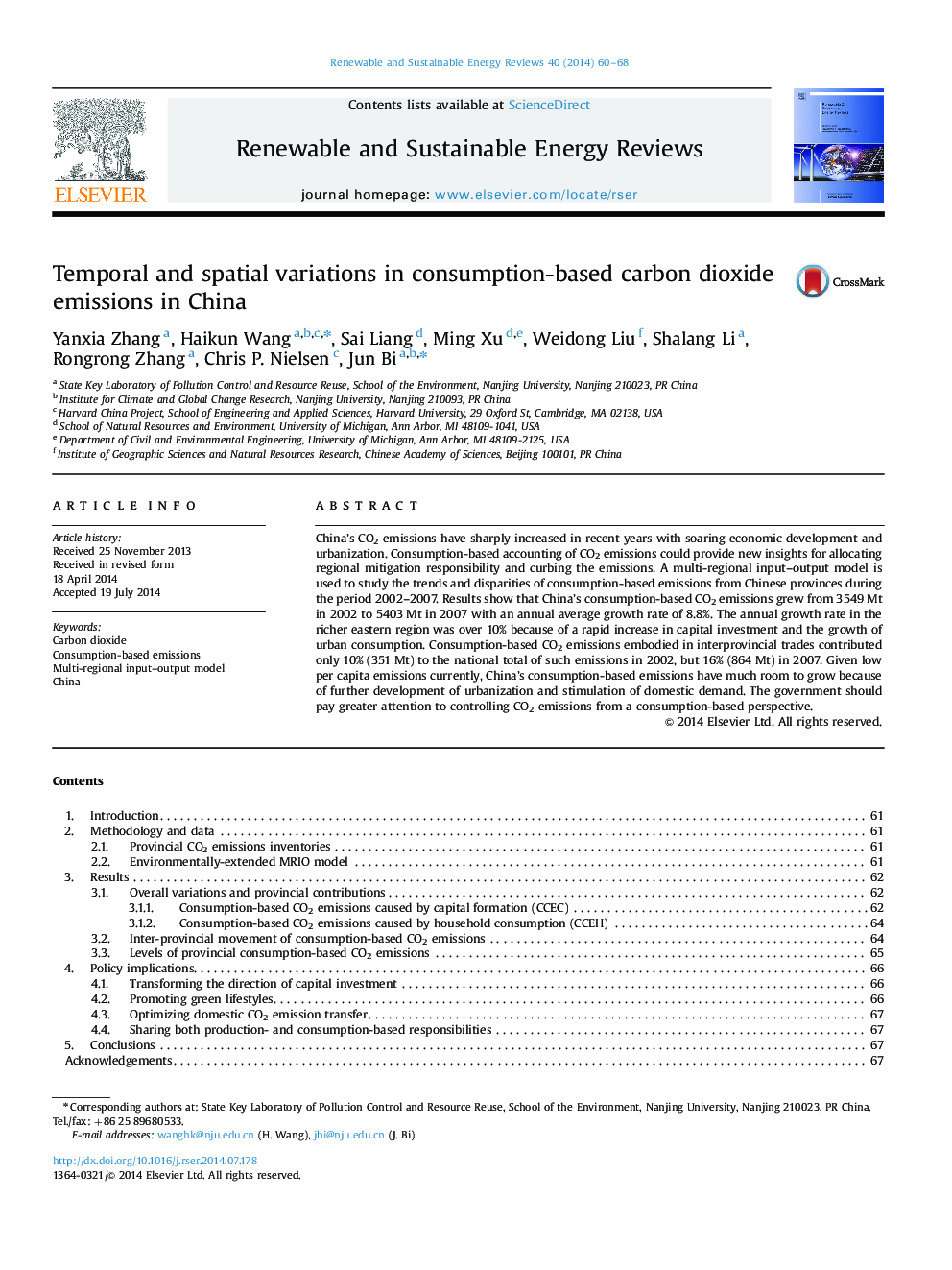| کد مقاله | کد نشریه | سال انتشار | مقاله انگلیسی | نسخه تمام متن |
|---|---|---|---|---|
| 8118417 | 1522345 | 2014 | 9 صفحه PDF | دانلود رایگان |
عنوان انگلیسی مقاله ISI
Temporal and spatial variations in consumption-based carbon dioxide emissions in China
ترجمه فارسی عنوان
تغییرات زمانی و مکانی در انتشار دی اکسید کربن مبتنی بر مصرف در چین
دانلود مقاله + سفارش ترجمه
دانلود مقاله ISI انگلیسی
رایگان برای ایرانیان
کلمات کلیدی
دی اکسید کربن، انتشار گازهای گلخانه ای، مدل خروجی چند منطقه ای، چین،
موضوعات مرتبط
مهندسی و علوم پایه
مهندسی انرژی
انرژی های تجدید پذیر، توسعه پایدار و محیط زیست
چکیده انگلیسی
China's CO2 emissions have sharply increased in recent years with soaring economic development and urbanization. Consumption-based accounting of CO2 emissions could provide new insights for allocating regional mitigation responsibility and curbing the emissions. A multi-regional input-output model is used to study the trends and disparities of consumption-based emissions from Chinese provinces during the period 2002-2007. Results show that China's consumption-based CO2 emissions grew from 3549Â Mt in 2002 to 5403Â Mt in 2007 with an annual average growth rate of 8.8%. The annual growth rate in the richer eastern region was over 10% because of a rapid increase in capital investment and the growth of urban consumption. Consumption-based CO2 emissions embodied in interprovincial trades contributed only 10% (351Â Mt) to the national total of such emissions in 2002, but 16% (864Â Mt) in 2007. Given low per capita emissions currently, China's consumption-based emissions have much room to grow because of further development of urbanization and stimulation of domestic demand. The government should pay greater attention to controlling CO2 emissions from a consumption-based perspective.
ناشر
Database: Elsevier - ScienceDirect (ساینس دایرکت)
Journal: Renewable and Sustainable Energy Reviews - Volume 40, December 2014, Pages 60-68
Journal: Renewable and Sustainable Energy Reviews - Volume 40, December 2014, Pages 60-68
نویسندگان
Yanxia Zhang, Haikun Wang, Sai Liang, Ming Xu, Weidong Liu, Shalang Li, Rongrong Zhang, Chris P. Nielsen, Jun Bi,
